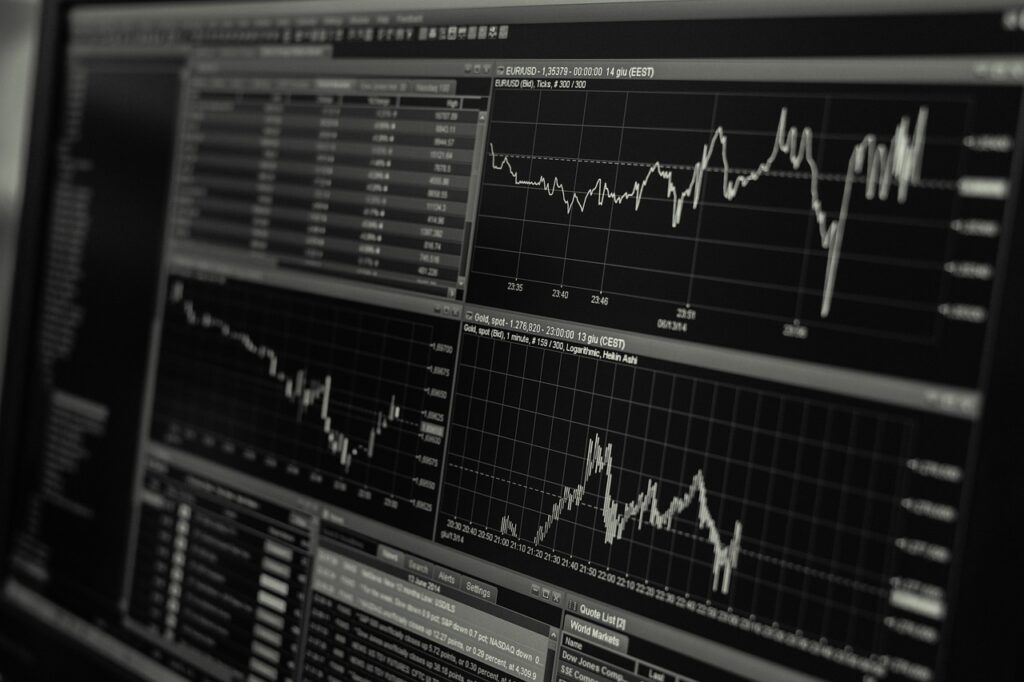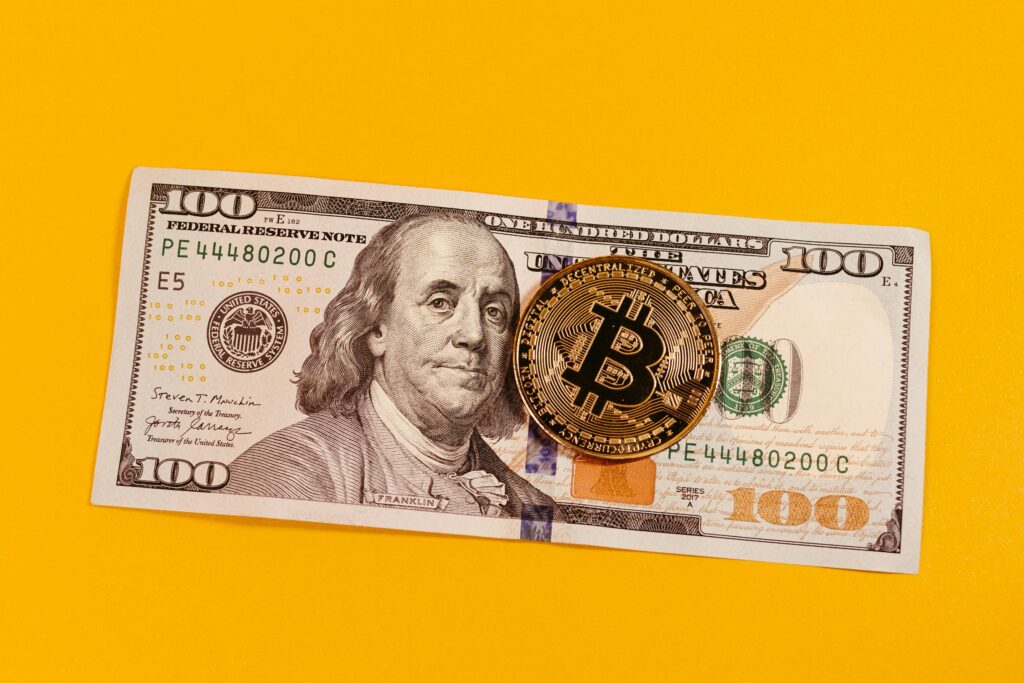Most traders don’t lose because of bad strategies, they lose because they never learned to control their mind.
Whether you’re tracking stockmarket today or diving deep into crypto arbitrage, the real battle isn’t in the charts, it’s in your brain.
This article reveals the unseen playbook used by high-performance traders in stock futures, forex, and day trading to master mental discipline and win.
Introduction: The Battle No One Sees
The truth about trading? It has less to do with charts and more to do with choices.
Whether you’re staring at stockmarket today charts, crypto arbitrage signals, or tracking S&P 500 futures on CNBC premarkets, the battlefield isn’t the screen, it’s your mind.
Most new traders believe that success lies in mastering the technicals: analyzing chart patterns, finding that perfect fx trade entry, or discovering hidden gems like TTD stock before the breakout. But professionals know something else:
Trading is a mind game and your psychology is the playbook.
If you want to survive margin calls, navigate stock futures volatility, or win at forex trading, then mastering your mental game is your greatest edge.
The Trader’s Mindset: Your Invisible Weapon
Before you analyze the next DJIA futures now report or enter the futures market, you need to understand this: your mindset governs everything. A winning mindset isn’t about optimism; it’s about clarity.
Retail Traders vs. Professional Traders:
- Retail traders chase outcomes. They want to “win” trades.
- Pros focus on execution and discipline. They don’t get attached to a single outcome.
When you open your brokerage account and see a red day, how do you react? Fear? Rage? Doubt? That reaction determines your trajectory more than any MACD signal.
Pro Tip: The markets are neutral. Your emotions aren’t.
Emotional Discipline: The Real Market Indicator
Your emotional state is a better indicator than any candlestick.
Whether you trade on Robinhood stock, WeBull, or Interactive Brokers, your decisions are often driven not by logic but by limbic impulses. Fear of missing out (FOMO), greed, and frustration are responsible for more blown accounts than bad strategies.
Common Emotional Pitfalls:
- Chasing trades during pre market surges
- Overleveraging on a “sure thing” (often followed by margin calls)
- Revenge trading after a loss
Remember: There is no ETF for emotional discipline. You must build it.
Mastering Losses: Reframe to Rewire
You will lose. Everyone does.
Even seasoned futures trading veterans know losses are part of the journey. What separates winners from losers is how they handle them.
Losing money in stock trading or forex trading doesn’t mean you’re a bad trader. It means you’re human.
Steps to Reframe Losses:
- Journal the emotion and setup.
- Ask: Did I follow my process?
- Identify the root cause, emotional or strategic?
Losses are tuition to the market. Pay it and learn. Or ignore it and repeat the same class.

How Winning Can Ruin You
Ironically, profits can be more dangerous than losses.
Why? Because winning can make you overconfident.
Let’s say you hit a few big wins in crypto arbitrage or scalped S&P 500 futures successfully. You start feeling invincible. You increase your risk. You ignore your system. Then, the market humbles you.
Discipline is tested more after a win than a loss.
A trader who doesn’t protect a profit will soon be protecting losses.
Read: “Psychology of Trading” by Dr. Brett Steenbarger
Building Mental Resilience for High-Stakes Performance
Mental resilience isn’t built in calm, it’s forged in chaos.
When the stockmarket is crashing or forex pairs are moving 135,000 pips during a news event, you must stay calm. Breathe. Focus. Stay detached.
Build Mental Resilience With:
- Morning routines (meditation, visualizing scenarios)
- Journaling before and after trades
- Exercise (boosts emotional regulation)
- Taking breaks from screens
Treat yourself like an athlete. Your mental game is your performance edge.
Trading Journal: Your Mental Audit Tool
Most traders skip journaling. But if you don’t journal, you don’t grow.
A trading journal is more than a log of entry and exit points. It’s a mirror of your emotional decisions.
Track things like:
- Your mental state before and after trades
- What made you hesitate or act impulsively
- Which trades were based on fear vs. data
A journal reveals the patterns that charts don’t.
Whether you’re tracking forex or ETFs, self-awareness compounds faster than profits.
Pattern Recognition Starts in the Mind
Great traders recognize more than price patterns. They recognize emotional patterns.
Before you react to stockmarket today volatility or cnbc premarkets news, pause. Ask yourself:
- Have I seen this setup before?
- What happened last time I felt this way?
Your brain, like a muscle, adapts to repetition. Repeated calm under pressure trains your nervous system to respond with control, not chaos.
Your Personal Psychology Playbook
What works for one trader may wreck another. Create your own playbook.
This includes:
- Mental rules (e.g., no trading after 3 consecutive losses)
- Emotional check-ins before entering a trade
- Scheduled breaks from high-volatility markets
You don’t need to trade every fx trade setup or jump on every ETF spike. Protect your psychological capital.

Prop Firm Psychology vs Retail Mindset
Funded prop traders think differently. Their edge is mindset, not capital.
Prop Traders:
- Focus on consistency, not home runs
- Think in terms of risk per trade, not total PnL
- Follow a strict rule-based system
Retail Traders:
- Chase big profits
- Get emotionally attached to outcomes
- Trade emotionally, not systematically
If you want to play at the highest level of futures trading or forex trading, think like a prop firm. Let your process lead.
Reprogram Your Beliefs: Identity Drives Behavior
You can’t outperform your self-image.
If you subconsciously believe you’re not “good with money” or that “trading is gambling,” you will sabotage yourself. Your beliefs shape your behavior.
To rewire:
- Use affirmations grounded in logic: “I follow my system, not my emotions.”
- Visualize yourself trading calmly under pressure.
- Create an identity statement: “I am a disciplined risk manager who trades with patience.”
You don’t rise to the level of your strategy. You fall to the level of your self-image.
Bonus Section: Practical Tools for Trading Psychology
1. Pre-Market Checklist:
- Did I sleep well?
- Am I emotionally neutral?
- Do I have a bias? If yes, why?
2. Breathing Technique (Box Breathing):
- Inhale 4s
- Hold 4s
- Exhale 4s
- Hold 4s
- Repeat 3x before high-impact trades
3. Post-Trade Reflection:
- Did I follow my plan?
- What emotions were present?
- What can I learn?
4. Mental Reset Routine:
- After 2 losses: Take 15-min walk
- After 3 emotional trades: Stop for the day
5. Self-Talk Script:
“I don’t chase the market. I wait for my edge. I trade like a professional.”

Conclusion: Master the Market Within
It doesn’t matter if you’re trading TTD stock, exploring crypto arbitrage opportunities, or watching the S&P 500 futures tick by tick, your biggest competitor is you.
You can master strategies, use tools like Interactive Brokers, get into the hottest ETFs, and time the stockmarket today news cycle perfectly. But if your psychology fails, your trading fails.
The good news? You can train your mind just like you train your edge.
Master the mind game, and the market becomes your mirror, not your enemy.
Welcome to the psychology playbook. Your next move is up to you.
Want weekly trading psychology tips that actually work?
Join The Reborn Trader newsletter for powerful mindset strategies, emotional discipline exercises, and behind-the-scenes insights from a real trader who rebuilt his mind from rock bottom.
Subscribe here and level up your mental edge.

FAQs
Why is trading psychology important?
Trading psychology is crucial because emotional decisions often lead to poor outcomes. Mastering your mindset helps reduce impulsive trades and manage risk effectively.
How do I control emotions while trading?
Use techniques like journaling, breathing exercises, and pre-market checklists to stay calm. Building routines and reviewing your behavior is key to emotional control.
What’s the difference between retail and prop firm trading psychology?
Retail traders often chase profits emotionally, while prop firm traders focus on discipline, consistency, and risk per trade. The mindset difference is massive.
Can journaling improve my trading performance?
Yes. Journaling helps identify emotional patterns and improves decision-making by making you more aware of your mental state before and after trades.
What tools can help improve trading psychology?
Meditation, trading journals, mental reset routines, affirmations, and daily mental check-ins are effective tools for mastering trading psychology.
